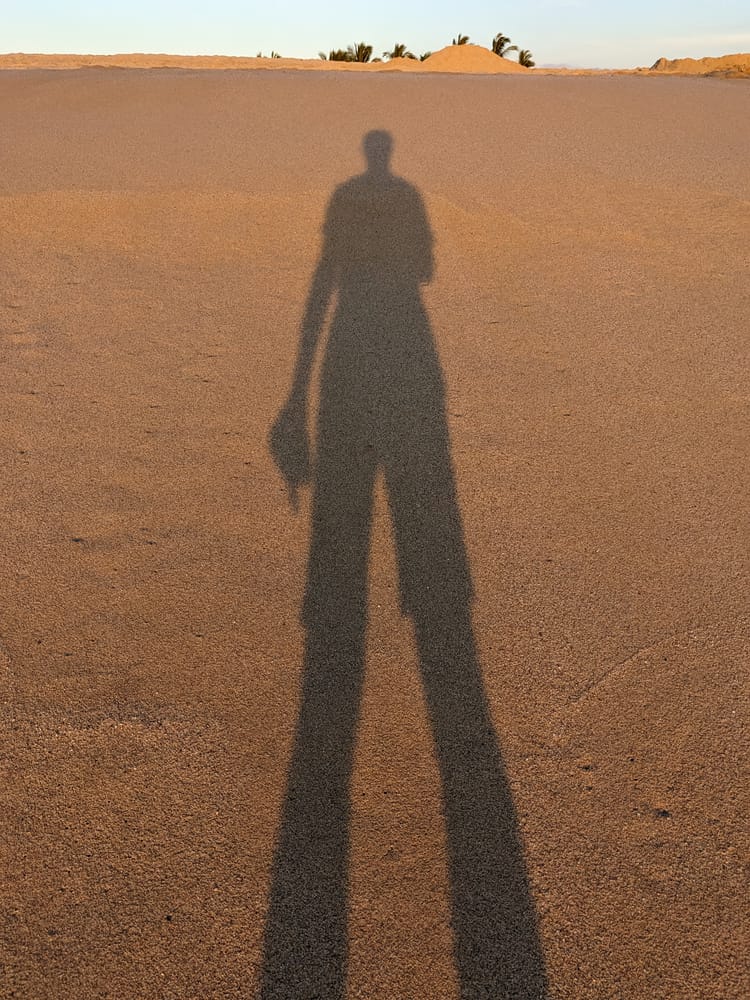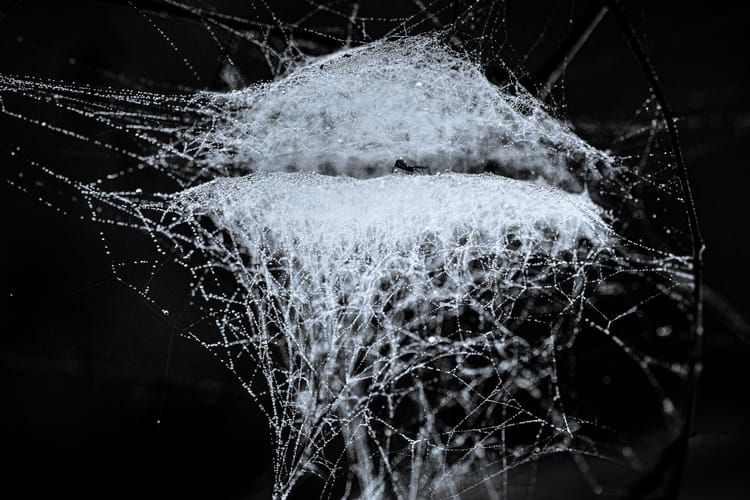8. Vandana Parashar ~ shelled peas

For Vandana Parashar, "Haiku is a way of life as much as a kind of poetry." She writes:
I may categorize my life into periods that occurred before and after haiku. Before I knew about haiku, I was merely a silent viewer of the movie of life.
It's easy, isn't it, to just let the days flow by, propelled by our inertia. But then there are those special moments when we feel as though we are living life in a truer, deeper way—our souls opened to "the grandeur of this planet," as though on "first seeing [our newborn] child."
You are so full of wonder and thankfulness. Your body is overcome with an incredible thrill, reinforcing your belief in something greater than ourselves.
These moments of grandeur need not be splashy or loud. Parashar's poems often find their wonder in the delicate. My favorite is:
shelled peas
I discover who I am
outside of us
I imagine the narrator shelling peas, hearing that satisfying pop, and watching the pile of bright green grow. And out of that simple manual practice, there is an awakening of the heart. Isn't life often like this, how we can discover truth in the small, quiet things?
Ryland Shengzhi Li, confluence co-editor
poems
performance anxiety half-open poppy
Alone, I Am Not (2022)
oversewing
the ripped lotus
daddy stitch
Alone, I Am Not (2022)
rearranging itself around me patriarchy
Human/Kind 1.8 (Sept 2019)
missed period reordering my priorities
Human/Kind 1.8 (Sept 2019)
an orchid
trapped in a paperweight
child bride
The Heron’s Nest XXII.4 (Dec 2020)
Touchstone Shortlist (2020)
clean sheets
he wants me
to talk dirty
#FemkuMag 28 (Jan 2021)
victim-blaming a lacy bra on the clothesline
Failed Haiku 71 (Nov 2021)
exorcism
every time I say
I am gay
Prune Juice (Nov 2021)
first love wingardium leviosa
Haiku Dialogue (Dec 16, 2021)
hunger strike
by the end of the day
hunger strikes
tsuri dōrō 7 (Jan/Feb 2022)
library book
did his hands touch
you too
Prune Juice 36 (Mar 2022)
shelled peas
I discover who I am
outside of us
First Prize, Golden Haiku Competition (2022)
as if no big deal
our kids call us
brown parents
Poetry Pea Podcast season 5 episode 6 (Mar 21, 2022)
uninstalled the version of God I didn’t like
whiptail 3 (Apr 2022)
ovulating
I dust the pollen
off my dress
The Heron’s Nest XXIV.2 (June 2022)
honeymoon
all night long the sound
of melting snow
Modern Haiku 53.2 (June 2022)
flushed cheeks
what am I
to a butterfly
Lexington Haiku Contest (July 2022)
squid
ah! to have three hearts
broken
tsuri dōrō 12 (Nov/Dec 2022)
making up for
the little space she takes
robin’s song
The Heron’s Nest XXIV.4 (Dec 2022)
spent sun
all his life he was told
to man up
Akitsu Quarterly (Winter 2022)
pouring rain
every bucket has its own
hole in the roof
The Heron’s Nest XXV.4 (Dec 2023
summer dress
all the ways breeze
finds its way in
Honorable Mention, 13th Polish International Haiku Contest (2024)
thin walls
the couple next door
prays for me
Prune Juice 42 (Apr 2024)
cold night
mother dies again
in my dream
Acorn 52 (Spring 2024)
waiting to hear and be heard rain when I die
Kingfisher 9 (Apr 2024)
essay
who I really am
Haiku is a way of life as much as a kind of poetry. I may categorize my life into periods that occurred before and after haiku. Before I knew about haiku, I was merely a silent viewer of the movie of life. Haiku helped me feel a part of this samsara* and opened my eyes and thoughts to the grandeur of this planet.
A well-written haiku, in my opinion, is similar to first seeing your child. You are so full of wonder and thankfulness. Your body is overcome with an incredible thrill, reinforcing your belief in something greater than ourselves.
Conversely, an effective senryu is comparable to a potent purgative. You feel you can safely let go of the emotions you've been holding onto for a long time.
When I write haiku or senryu, I have two things in mind which I intend to achieve—
- The readers should wish that they ought to have written that poem. It should leave them with the feeling of why they didn't think of it.
- The readers should gasp upon reading my poem and think that that's precisely how they were feeling but couldn't put it into words. The readers should feel that they aren't alone and can trust me to give them a voice.
Haiku is the ideal form of expression for someone like me who frequently struggles to put words together into prose. It allows me to show who I really am. As an introvert and a taciturn person, I’ve found haiku to be the perfect medium for communication and connection.
Over the years, I have come to believe that to capture the true essence of haiku, one must learn to strike a balance between tradition and innovation. Whereas tradition forms the soul of haiku, innovation and experimentation keep haiku from stagnating. One must be true to the values of art and willing to carry them forward in accordance with the changing times.
*samsara refers to the cycles of death and rebirth that characterize life in this world according to Indian religions.
commentaries from Fellows
Daniel Shank Cruz & David Green
Daniel Shank Cruz
Vandana Parashar’s staunchly feminist poems are inspiring, razor-sharp calls to action.
rearranging itself around me patriarchy
epitomizes this activism. The poem acknowledges the systemic violence perpetrated against the speaker—the patriarchy is always there—but it also asserts that the speaker and readers have the power to fight against patriarchy to lessen its power, to force it to “rearrange” as we beat it back.
exorcism
every time I say
I am gay
similarly references oppression while simultaneously rejecting its power via how “exorcism” does double duty by not letting us know who is doing the exorcising. It might be religious fanatics who believe that queerness is caused by a demon who must be cast out. However, in my preferred reading, it is the speaker banishing internalized homophobia every time they say they are gay out loud. They claim their sexuality proudly.
uninstalled the version of God I didn’t like
shows Parashar’s knack for flawless poem structure. The juxtaposition of age-old subject matter, spirituality, with the contemporary language of software gives the poem a pleasing momentum. The poem’s cut seems to come after “uninstalled,” but “uninstalled the version” as a computer metaphor also reads as a complete unit, which would put the cut before “of” (or perhaps “God”). I love how this lengthening of the possible cut—its malleability is a feature, not a bug—pulls me along in the poem to its conclusion.
David Green
There is so much to contemplate in the range of poems Vandana Parashar has shared here. Fortunately, her essay offers one possible way in—a specific path (among many)—to explore some of her haiku.
Parashar discusses above how her life changed “after [discovering] haiku,” how it enabled her—as an “introvert”—to express herself. Of significance is how she chooses to use this newfound voice: in service to others. She uses her own newly accessible voice to speak for others, to bring them into community—our larger societal community—so as not to feel alone.
To write effective and artful haiku on such topics is particularly difficult. Too many clumsy haiku exist which confuse the mere mention of a weighty topic in the poem with actual gravity and artfulness. These can only be earned through the expert crafting of said haiku. Parashar clearly does the latter in these two poems:
an orchid
trapped in a paperweight
child bride
library book
did his hands touch
you too
Both poems start with specific, yet mundane objects, as many haiku do: a paperweight, a library book. The remaining lines, though, move the reader into much different territory. They turn benign objects into troubling and sinister ones, giving the haiku their chilling power:
- An orchid, encased in resin, beautiful and delicate, is now “suspended”—no longer growing, now, despite appearances, “dead” and surrounded forever on all sides (a call back to Parashar’s “patriarchy” monoku).
- The library book, similarly, grows ominous in the haiku’s juxtaposition. Further, library books are items to be “checked out” are discussed in terms of their “availability” and ultimately, “used and then abandoned for others to use.”
Good writing so often is about “showing” versus “telling,” particularly so in haiku and even more so for poets whose goal is to use haiku as a platform to raise awareness, make a statement or give voice to the voiceless. In her essay, Parashar talks about “striking a balance” in her haiku between tradition and innovation. Finding this balance in haiku about “hard” subjects is no small feat yet Parashar does so with subtlety and grace.
Thank you for reading! We invite you to continue the conversation by hitting the "comment" button below. Feel free to share your favorite poem of Vandana's or your reactions to their work. Vandana and the editors look forward to reading and responding to your comments.
If you liked the issue, we also welcome you to share this with others in your community. Stay tuned for the next issue later in April, which will feature collaborative works by our poet Fellows.






Member discussion